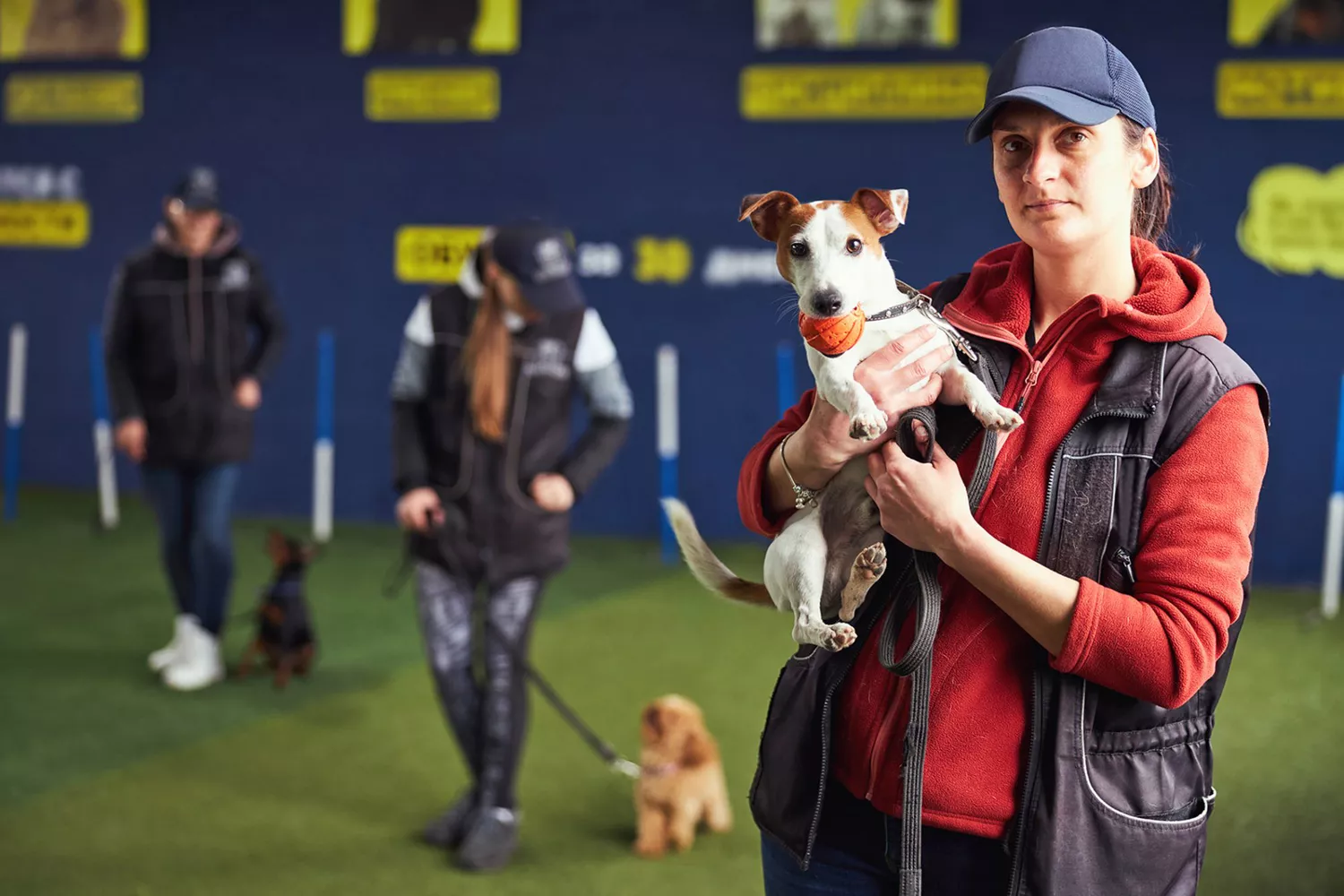
If your pet dog treats strolls like a video game of tug-o-war or wreck the couch cushions when you leave for the office, you might be considering getting the assistance of a dog fitness instructor or canine habits specialist. Selecting the ideal specialist for your pet is much easier said than done– particularly when their credentials look more like a random spoonful of alphabet soup than a significant guide.
Since these complicated qualifications do matter, we’ve created a quick guide to common accreditations and accreditations for pet trainers and behavior specialists in the United States– all of which are devoted to positive reinforcement rather than punishment. We’ll also cover some of the qualifications available for those who work with felines.
It’s constantly a great concept to talk with your vet about any habits problems and ask for their recommendations. These are veterinarians who’ve finished residencies in animal behavior on top of graduating from veterinary school.
Trainer Or Behavior Consultant? Which One Do I Need?
Fitness instructors can have behavior consulting accreditations and vice versa, the 2 functions fill various needs within the pet care field. According to the International Association of Animal Behavior Consultants, trainers assist animals and their caretakers find out the crucial abilities they require to live happily and safely in their particular roles, whether the animal is a service animal, household animal, or otherwise. Animal behavior experts, on the other hand, are competent in determining causes of behavioral concerns (such as stress and anxiety or reactivity), developing intervention plans, and helping owners carry out these plans.
Dog Training Credentials
Dog training is an unregulated industry. With absolutely no licensing requirements or regulative oversight, anyone can call themselves a fitness instructor. And anybody who makes money to train pets can call themselves a “professional.”.
However, there are a number of training accreditations offered that can show understanding and competence. Here are a few of the most typical credentials:.
Licensed Professional Dog Trainer– Knowledge Assessed (CPDT-KA).
The Certification Council for Professional Dog Trainers (CCPDT) is an independent licensing organization for pet dog fitness instructors. Prior to trainers can even take the 180-question accreditation test that determines knowledge and skills in ethology (the science of animal habits), discovering theory, pet training strategy, and guideline, they should have a minimum of 300 hours of canine training experience within the last 3 years. Certificants must recertify every 3 years by either retaking the exam (which is regularly updated) or by finishing continuing education systems. This helps guarantee they keep up to date on the current practices, methodologies, devices, and terminology.
Certified Professional Dog Trainer– Knowledge and Skills Assessed (CPDT-KSA).
Trainers who currently hold the CPDT-KA credential can take it an action further with CCPDT’s skills-based certification. Rather of a composed exam, fitness instructors should send videos of themselves completing assigned hands-on exercises. CPDT-KSA certificants need to likewise renew their accreditation every three years by means of either testing or continuing education units.
Certificate in Training and Counseling (CTC).
Graduates of the Academy for Dog Trainers can make a CTC designation. The program is organized into four levels and takes an average of two years to complete (with 6 months invested in each level). Students are trained in case triage, diagnosis estimating, and counseling skills for pet parents whose pets display fear, aggressiveness, and other habits issues. They also acquire an understanding of canine ethology, used habits analysis, development, discovering theory, breeds, and genetics and their impact on behavior. To progress to each next level, trainees should submit videos showing their training skills and pass each level’s needed projects and understanding test. Certification is awarded after passing the last examination.
Karen Pryor Academy Certified Training Partner (KPA CTP).
The Karen Pryor Academy for Animal Training and Behavior offers a certification program that teaches both the science and the practice of pet training. Certificants also learn how to advise pet moms and dads, solve canine behavior issues, and manage a company.
Expert Canine Trainer– Accredited (PCT-A).
The Pet Professional Guild’s Pet Professional Accreditation Board provides accredited Training Technician and Professional Canine Training certification for professionals who are committed to positive training and habits practices. Certificants can be recognized as either Canine Training Technicians (CTT-A) or Professional Canine Trainers (PCT-A), with the latter being the more innovative tier.
Victoria Stilwell Academy– Certified Dog Trainer (VSA-CDT).
Students of the Victoria Stilwell Academy Certified Dog Trainer program are informed in training dogs, teaching people, and branding and marketing their business. The curriculum includes subjects like pet dog body movement, cognition, finding out theory, enrichment, and advanced habits modification, and trainees find out a range of training approaches under the positive support umbrella.
International Association of Animal Behavior Consultants Accredited Dog Trainer (IAABC-ADT).
To be qualified for this program, the IAABC suggests a minimum of two years of pet dog training experience, a minimum of 100 hours of coursework, workshops, mentorship, and education in the company’s Core Competencies, plus a working knowledge of learning science, training, and husbandry. Candidates need to also send references and show used knowledge, skills, and abilities with the IAABC Core Competencies. Continuing education is needed to keep accreditation.
Free Free Certified Professional– Trainer (FFCP-Trainer).
The Fear Free Animal Certification Program is created for licensed fitness instructors who wish to carry out Fear Free methods with their clients’ pets at the veterinary center, through in-clinic training classes for pups and kittycats, and in day-to-day training outside the center. Certificants must finish training modules and then sign the Fear Free Pledge, which is a dedication to support a human, mentally protective standard procedure and ethical requirement for pet care, training, and professionalism. They need to also complete continuing education hours every year.
Dog Behavior Consultant Credentials.
As with canine trainers, anybody can give themself the title of “Professional Dog Behavior Consultant.” Considering the seriousness of the issues they deal with, it’s essential to find those with the education, abilities, and experience required to securely and effectively modify habits. Searching for these common credentials can assist:.
Partner Certified Applied Animal Behaviorist (ACAAB).
ACAAB is among 2 accreditation routes offered by the Animal Behavior Society. Candidates must fulfill specific education, experience, and endorsement requirements to end up being accredited. This includes holding a master’s degree in a biological or behavioral science with a focus in animal habits and a research-based thesis, having a minimum of two years of professional experience in applied animal behavior, and a minimum of 3 recommendation letters from pertinent sources (consisting of a qualified Animal Behavior Society member).
Certified Applied Animal Behaviorist (CAAB).
The second and more rigorous of the two accreditation routes used by the Animal Behavior Society, CAAB applicants should have a postgraduate degree in a biological or behavioral science with a focus on animal medicine, consisting of five years of professional experience, or a doctorate in veterinary medication plus 2 years in a university-approved animal habits residency and three years of expert experience in used animal habits (among other requirements). As with ACAAB classification, CAAB applicants need to also supply three recommendation letters.
Licensed Dog Behavior Consultant (CDBC).
Provided through the International Association of Animal Behavior Consultants (IAABC), CDBC designation has a substantial list of eligibility requirements, including a suggested minimum of 4 years and 500 hours of experience in animal habits consulting, a minimum of 400 hours of coursework, workshops, mentorships, and education in the IAABC Core Competencies, in addition to working knowledge of finding out theory, counterconditioning, desensitization, training, and husbandry. They need to also submit letters of recommendation and complete written presentations of their applied understanding, skills, and capabilities with the IAABC Core Competencies. Accreditation must be renewed every three years.
Licensed Behavior Consultant Canine– Knowledge Assessed (CBCC-KA).
The CBCC-KA program provided by the Certification Council for Professional Dog Trainers (CCPDT) is for dog fitness instructors who use canine habits adjustment. Eligibility is based upon a number of requirements, consisting of a minimum of 300 hours of experience in canine behavior consulting (on fear, phobias, compulsive habits, stress and anxiety, and aggression) within the previous three years. Certificants must likewise pass a 180-question examination and then become recertified every 3 years by either retaking the test or by finishing continuing education systems.
Professional Canine Behavior Consultant– Accredited (PCBC-A).
The most advanced accreditation provided by the Pet Professional Accreditation Board, PCBC-An applicants need to have the ability to show their experience by having either 300 hours of group training classes or 150 hours of private training assessments under their belts. They need to also have actually earned 30 continuing education hours within the past 2 years, work or volunteer in a force-free training environment, and have expert referrals– including one from a client.
Certificate of Canine Studies (CCS).
The Northwest School of Canine Studies in Olympia, Wa., is the only dog behavior professional accreditation program in the U.S. that’s conducted entirely personally. Before getting in the program, trainees need to have completed a minimum of one year of college-level education and have a minimum of one year of hands-on experience dealing with pet dogs. Students complete 10 to 12 weeks of education in areas like animal knowing theory and ethics, in addition to weekly hands-on sessions with pets, before finishing with their CCS qualifications.
Cat Behavior Consultant Credentials.
Canines might control the training and habits consulting sphere, but cat parents understand that their family pets need help in some cases, too. Board-certified veterinary behavior specialists (DACVB) and animal behaviorists (ACAAB and CAAB) are all extremely certified to help with feline habits concerns, and Fear Free Certification also uses to working with felines.
The International Association of Animal Behavior Consultants (IAABC) offers a Certified Cat Behavior Consultant (CCBC) credential, too. Just like the canine version, CCBC classification includes a suggested minimum of 4 years and 500 hours of experience in animal habits consulting, a minimum of 400 hours of coursework, seminars, mentorships, and education in the IAABC Core Competencies, as well as working knowledge of finding out theory, counterconditioning, desensitization, training, and husbandry. Certificants must also send letters of recommendation, total written presentations of their used knowledge, abilities, and capabilities of the IAABC Core Competencies, and complete continuing education hours to preserve their qualifications.










